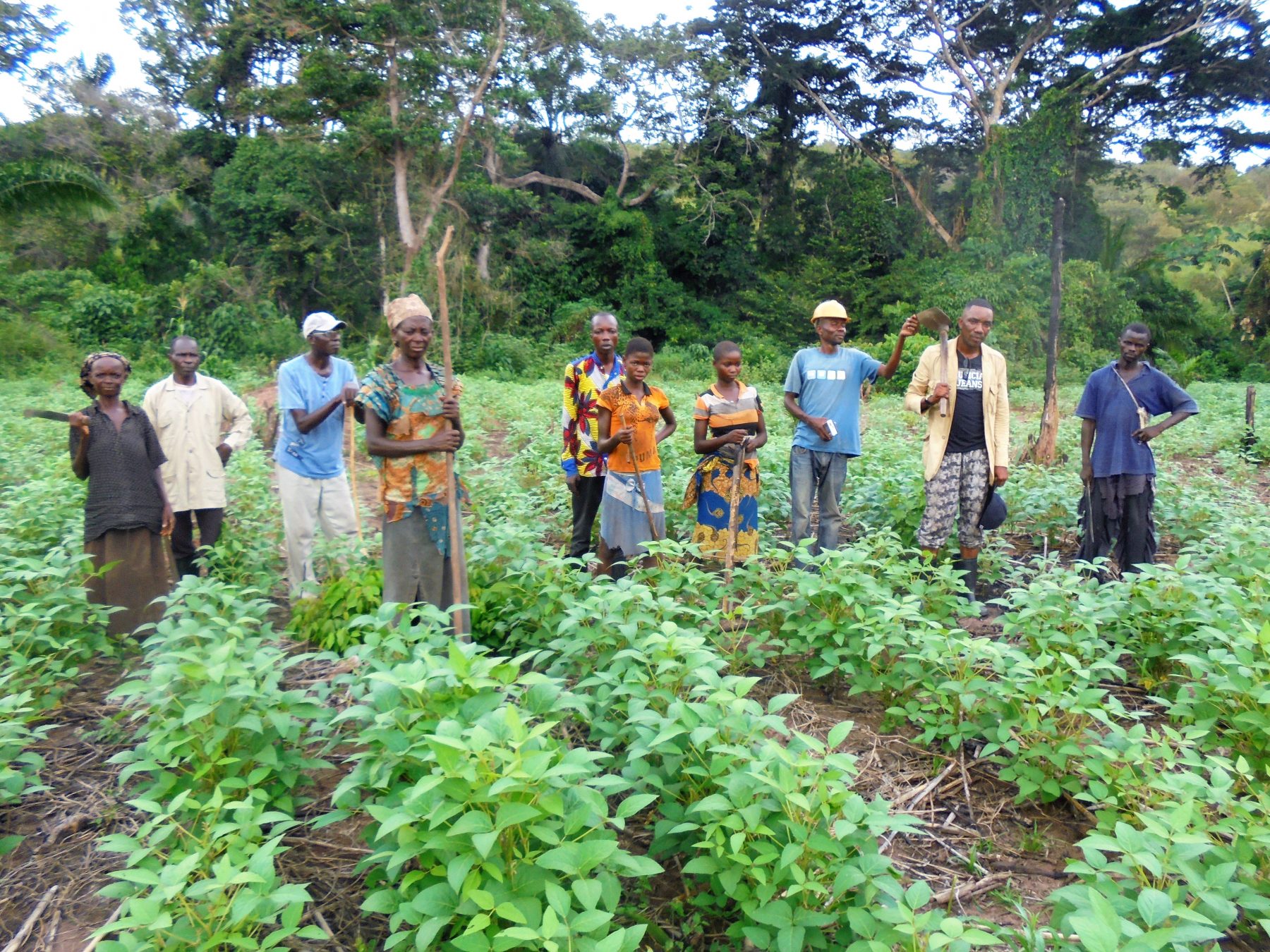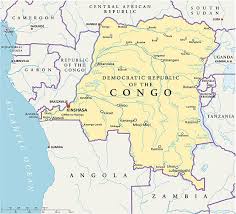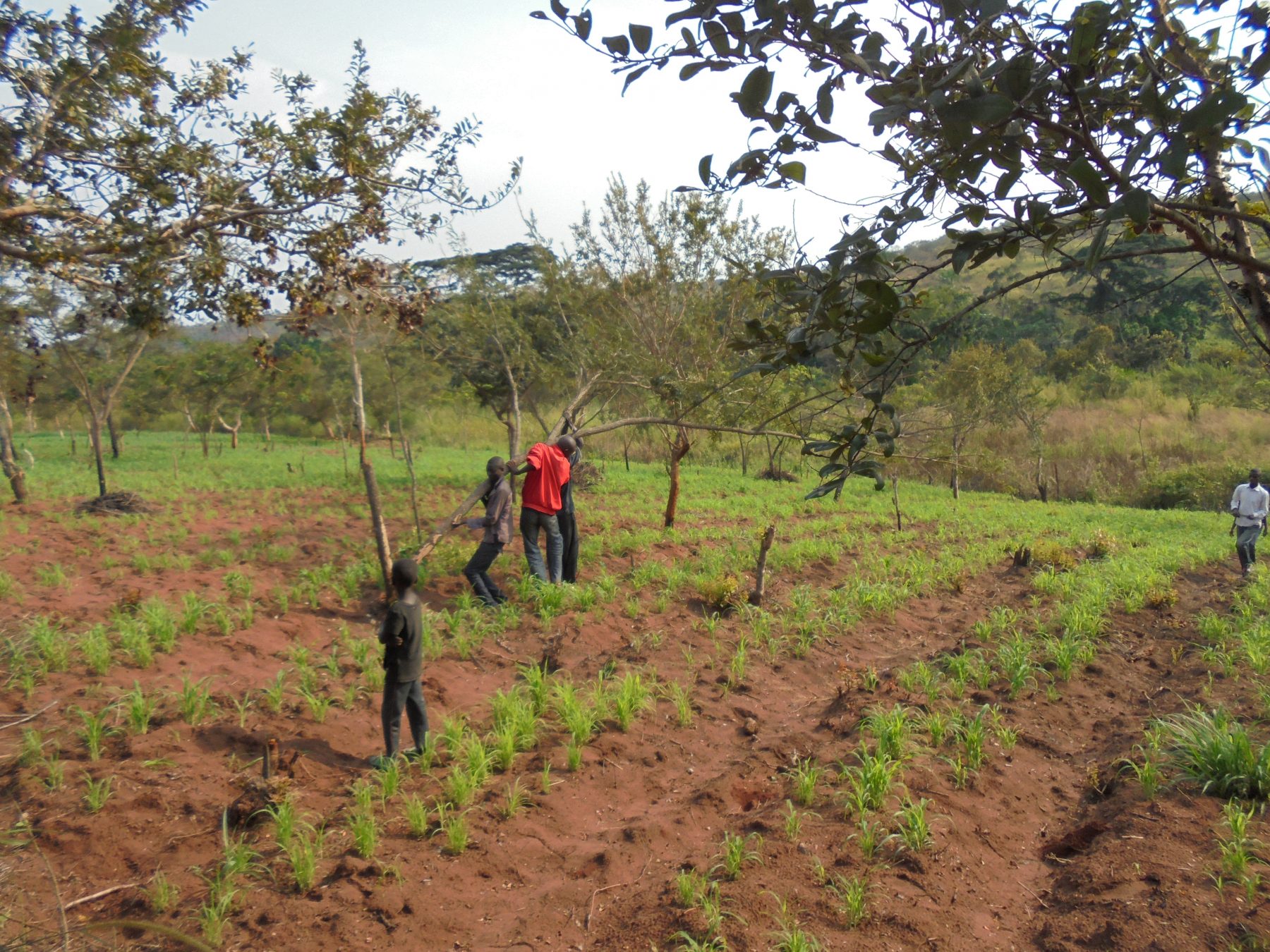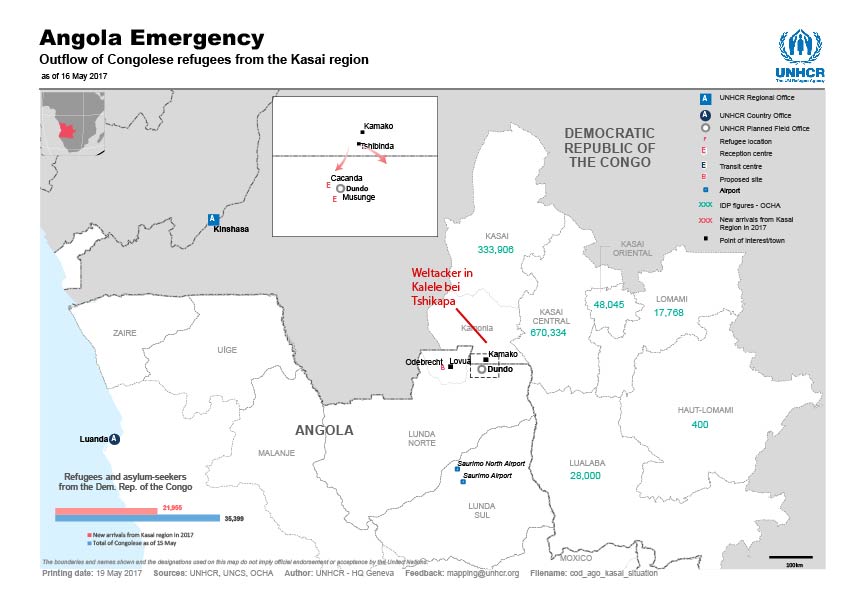
Since mid 2016, at least five regions of the central province of Kasai (central Kasaï, Kasaï oriental, Lomami, Sankuru and Kasaï) have been in conflict. Kasai Province is a stronghold of the opposition. The situation has escalated between security forces of the Government and militias following the murder of their leader Kamwina Nsapu in August 2016.
After the assassination of their customary chief Kamuina Nsapu by government troops in August last year, the Kamuina Nsapu militias, which defends itself against the influence of the Government in the Kasai region, started rebelling. Since January 2017 the conflict has widened to cover all of the southern Congolese province of Kasai. According to Dieudonné Lovua Mujito from the slow Food Convivium Tshikapa Kiongeka and coordinator of the Congolese Global Field, over 700 villages and communities are affected by this situation, which are spread over five districts (Tshikapa, Ilebo, Luebo, Mweka and Dekese). Well over 100 villages have been completely destroyed, and both public and private facilities have been affected. The fact that President Joseph Kabila has been refusing for months to step down as president after two terms in office as set out under the Constitution continues to provoke and sustain the conflict. Representatives of the Catholic Church withdrew as mediators from the negotiations between the Government of Kabila and the opposition in March. A new civil war threatens.


According to the Government, the conflict has already claimed the lives of several hundred people. Evidently however, far more people have been killed than so far estimated. The Catholic Church estimates that around 3,400 people have been killed in the past eight months alone, and over a million are fleeing the conflict. Most of the refugees are internally displaced. Thus, the biggest global refugee crisis in the D.R. of the Congo is going largely unnoticed by the general public of the rest of the world. According to the UN Refugee Agency more than 20,000 people have fled to neighbouring Angola since April. The UN speaks of many injured people being treated in Angola. Angola has asked the international community for help. According to national and international non-governmental organisations, numerous human rights violations are occurring on both sides. Ultimately, it is mainly the civilian population that suffers.
Since August 2016 over 1.3 million people have fled from the Kasai Region. Among them are, according to UNICEF, over 600 000 children.
It wasn’t until the kidnapping and murder of six UN special investigators in March 2017, who were dispatched to shed light on the human rights violations suspected in the Kasai region, that the world’s attention was drawn to the situation in the Congo. The murders sparked worldwide consternation. Because in addition to four Congolese investigators, a Swede and an American were killed.
Because escape into neighbouring Angola is not very straightforward, most people seek refuge in other provinces of the D.R.Congo without there being any official structures to receive them. The conflict also affects the local and national food security. According to Dieudonné from Slow Food, the access and the distribution of food decreases every day. Farmers and rural syndicates no longer dare to go out and work the fields because of the unrest. The situation brings such uncertainty onto the roads and onto the markets, that a food crisis threatens. This would affect over 830,000 000 people.
Source: UNHCR, May 2017
Amidst this turmoil, the field of our partner Dieudonné Lovua Mujito from the Slow Food Convivium Tshikapa Kiongeka seems to have been spared in a miraculous way. Up until now. This is because the field is located approximately 60 kilometres from the provincial capital, Tshikapa. The city is considered to be very unsafe. Many people try to escape to Angola from here. The inhabitants of Kalele, who work on the field, have not been able to work for some time now. Consequently, the harvest and local food security is at risk. In times of food rationing however, local and community supported agriculture could ideally contribute to stabilize the food security. “Existing community gardens were however largely abandoned and the first harvest of the year was lost. Possibly the next harvest will not succeed either.”
Dieudonné Lovua Mujito, our partner in the Democratic Republic of Congo describes a general uncertainty. It is only when the basic necessities are taken care of that long-term and sustainable measures can be taken, depending on the temporal and geographical possibilities.

Archive picture: World field in Kalele, D.R.Kongo, Slow Food convivium Tshikapa-Kiongeka
More about conflicts in the Democratic Republic of the Congo and their international causes and effects:
Fluchtgrund – site en allemand
La chronologie du conflit en République démocratique du Congo – 20minutes
Au Kasaï, un conflit coutumier qui dégénère en sale guerre – Le Monde
RDC: Comprendre la spirale de la violence au Kasai – Afrikarabia


